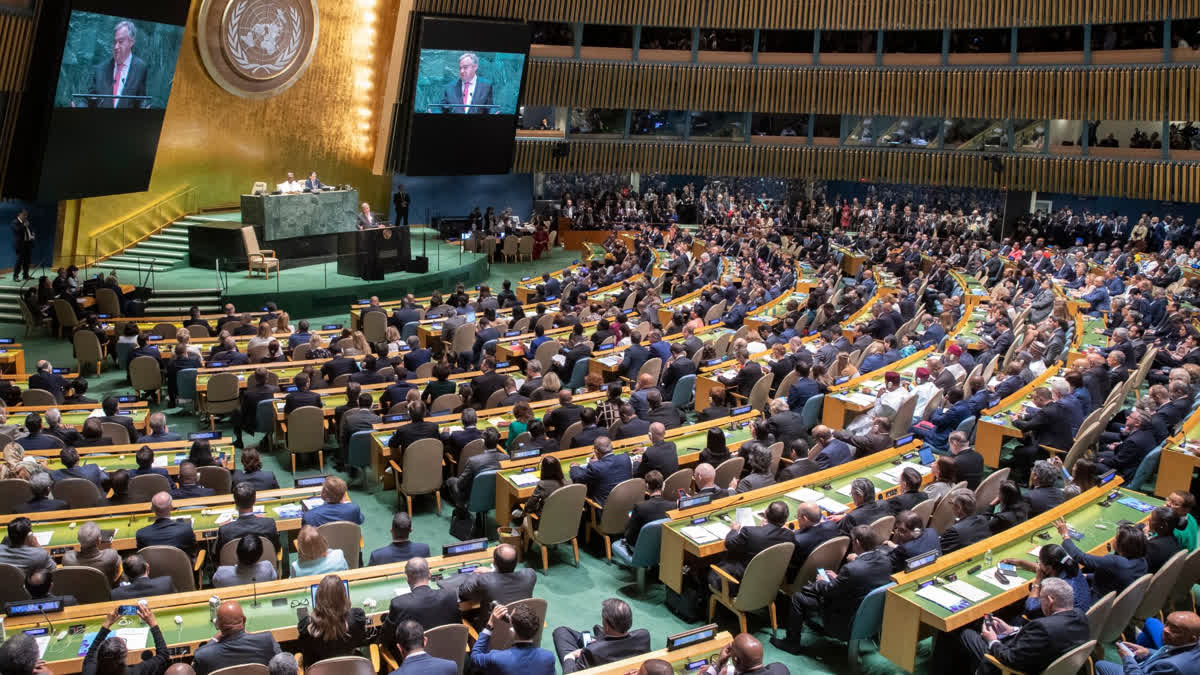United Nations : At the annual meeting of world leaders last year, the UN chief sounded a global alarm about the survival of humanity and the planet. This year, the alarm rang louder and more ominously, and the message was even more pressing: Wake up and take action right now. Secretary-General Antonio Guterres' assessment, delivered in his no-nonsense style, aimed to shock.
We are becoming unhinged, he said. We are inching closer to a great fracture. Conflicts, coups and chaos are surging. The climate crisis is growing. Divides are deepening between military and economic powers, the richer North and poorer South, East and West. A new Rubicon has been crossed in artificial intelligence.
Guterres has spoken often on all these issues. But this year, which he called a time of chaotic transition, his address to leaders was tougher and even more urgent. And looking at his previous state-of-the-world speeches, it seems clear he has been headed in this direction for quite some time. In his first address to world leaders in 2017 after taking the helm of the 193-member United Nations, Guterres cited nuclear peril as the leading global threat.
Two years later, he was warning of the world splitting in two, with the United States and China creating rival internets, currency, trade, financial rules and their own zero-sum geopolitical and military strategies." He urged vigorous action to avert the great fracture.
Then came the COVID-19 pandemic in early 2020. The global response Guterres called for never happened; richer countries got vaccines and poorer ones were left waiting. At last year's leaders' gathering, his message was almost as dire as this week's: Our world is in peril and paralysed, Guterres said. We are gridlocked in colossal global dysfunction.
This year, his message to the presidents and prime ministers, monarchs and ministers gathered in the vast General Assembly hall was unambiguous and stark. We seem incapable," Guterres said, "of coming together to respond.
Also Read : United States and China launch economic and financial working groups with aim of easing tensions
THE WORLD'S FUTURE, AND THE UN'S
At the heart of Guterres' many speeches this week is the very future of the United Nations, an institution formed immediately after World War II to bring nations together and save future generations from war. But in a 21st-century world that is far more interconnected and also more bitterly divided, can it remain relevant?
For Guterres, the answer is clear: It must. The Cold War featured two superpowers the capitalist United States and the communist Soviet Union.
When it ended, there was a brief period of US-dominated unipolarity after the breakup of the Soviet Union and its dissolution into a dominant Russia and smaller former republics.
Now it is moving to a more chaotic multipolar world" and creating, Guterres says, new opportunities for different countries to lead. But Guterres' key argument is rooted in history. He says it teaches that a world with many power centres and small groups of nations can't solve the challenges that affect all countries. (AP)



